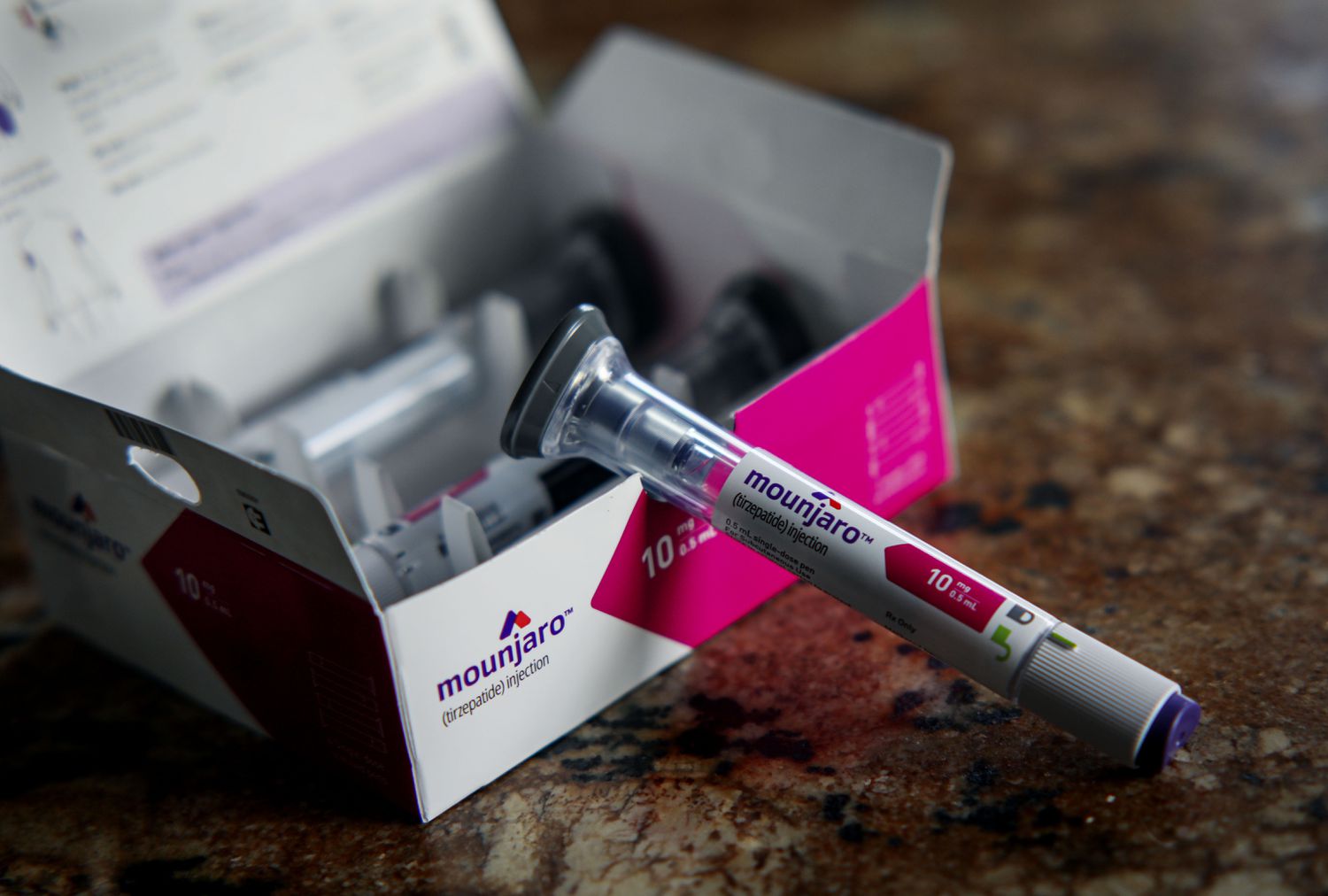Ozempic vs. Mounjaro: Comparative Study Reveals Superior Weight Loss Option

A new study has found that tirzepatide, Mounjaro’s active ingredient, may be more effective at helping people lose weight than semaglutide, Ozempic’s active compound.
The research, published in JAMA Internal Medicine, revealed that people on tirzepatide were “significantly more likely to achieve weight loss” than those taking semaglutide.
Both tripeptide and semaglutide—part of a class of medications called glucagon-like peptide-1 (GLP-1) agonists—are injectable medications.
The Food and Drug Administration has approved Mounjaro and Ozempic for type 2 diabetes, but some doctors prescribed them off-label—or for a different purpose than approved by the FDA, a permissible practice—to help with obesity. More recently, the FDA has approved Wegovy, which also contains semaglutide, and Zepbound, which contains tirzepatide, for weight loss.
Tirzepatide and semaglutide work to promote weight management in part by stimulating insulin production in the pancreas and delaying stomach emptying, making people feel fuller for longer.
Experts said the study’s findings will help provide doctors who prescribe these relatively new drugs with more insight into their effectiveness.
“These medications have changed the way doctors treat type 2 diabetes and obesity, but little data exist to compare the effectiveness of the two most common, Ozempic and Mounjaro,” Tricia Rodriguez, PhD, MPH, principal applied scientist at Truveta Research and study author, told Health. “This research with real-world data has the power to greatly improve our understanding of how these medications are being used in everyday practice and the effect that they’re having.”
The study authors wanted to explore the differences between tirzepatide and semaglutide to shed more light on two drugs that have been growing in popularity, Rodriguez said.
“With over 70% of US adults having overweight or obesity, GLP-1s have the potential to be used by a large number of people,” she said. “There has been evidence that these medications are effective for weight loss, but it hadn’t been clear just how effective they are, particularly in relation to each other.”
For the study, Rodriguez and her team analyzed the electronic health records of 18,386 people taking either tirzepatide or semaglutide between May 2022 and September 2023. The mean age of the participants was 52 years old, 70% were female, and the majority—77%—were White. Just over half had type 2 diabetes.
The team tracked how much weight the participants lost three, six, and 12 months after starting the medications.
“Our findings were broadly consistent with placebo-controlled clinical trials, finding that the majority of patients on both medications experience clinically meaningful weight loss within a year of treatment,” Rodriguez said. “However, patients on tirzepatide were over two times more likely to experience a 10% weight loss and three times more likely to experience 15% weight loss within a year, compared to patients on semaglutide.”
This could be because, in addition to activating receptors for the hormone GLP-1, tirzepatide also stimulates another gut hormone called glucose-dependent insulinotropic polypeptide (GIP), Dusty Price, APRN-CNP, a nurse practitioner at The Ohio State University Wexner Medical Center specializing in weight loss, told Health. This adds another mechanism for producing weight loss.
“That small polypeptide alone could be life-changing if you’re suffering from overeating,” Price explained.
GLP-1 agonists can come with side effects, and gastrointestinal symptoms are among the most common. Nausea, vomiting, constipation, and diarrhea have all been linked to the medications.
On this front, there’s no evidence to suggest tirzepatide is better than semaglutide. “While tirzepatide was significantly more effective than semaglutide, patients on both medications experienced substantial weight loss, and we observed no difference in the risk of GI adverse events,” study author Nick Stucky, MD, PhD, an infectious disease physician at Providence Portland Medical Center in Portland, Oregon, and vice president of Truveta Research, told Health.
“Both drugs are great options, and both have comparable side effects,” added Reena Bose, MD, an obesity medicine specialist at Cleveland Clinic.
Many factors inform a doctor’s decision about whether to prescribe tirzepatide or semaglutide, Bose told Health.
“When I’m deciding, [I’m asking,] ‘Are these drugs on the patient’s insurance plan? Is it going to be cost-effective?’ she said. “Many insurance [companies] are still taking their time to include” these medications in coverage.




